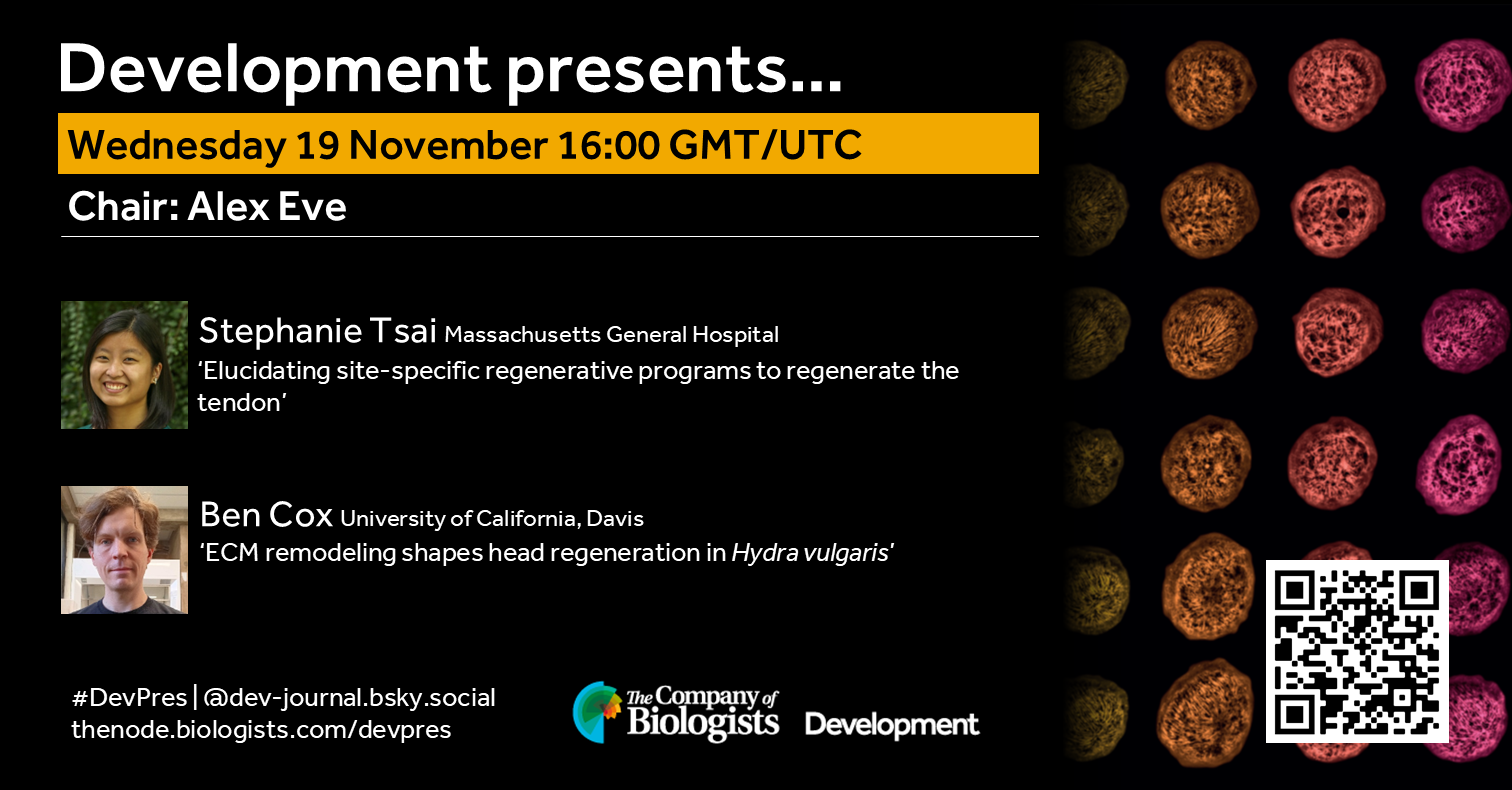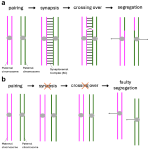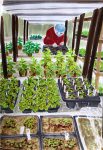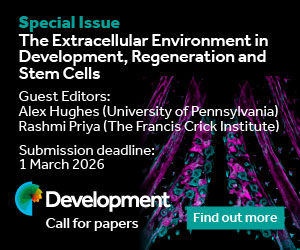Welcome to the Node
The Node is a place to read, write and interact with a global community of developmental and stem cell biologists. This is your site: once you’ve registered, you can freely share your blog post, job advert or event notice with the community.
Recent posts
Throwback to Biologists @ 100: Focus on sustainability
Posted by the Node, on 29 December 2025
Earlier this year, The Company of Biologists celebrated its 100-year anniversary with the Biologists @ 100 conference in Liverpool – bringing together researchers across a wide range of disciplines. To …SEBD Honours Antonio García-Bellido
Posted by Sociedad Española Biologia Desarrollo, on 18 December 2025
A Pioneer in Developmental Biology On the past 10th of November, Antonio García-Bellido passed away. Widely regarded as the father of the Spanish school of Developmental Biology and one of …Throwback to Biologists @ 100: Interviews from Liverpool
Posted by the Node, on 18 December 2025
Earlier this year, The Company of Biologists celebrated its 100-year anniversary with the Biologists @ 100 conference in Liverpool – bringing together researchers across a wide range of disciplines. To …Apply for Development’s Pathway to Independence programme
Posted by Alex Eve, on 17 December 2025
Development are currently welcoming applications for our Pathway to Independence (PI) programme, which aims to support a small number of researchers in the fields of developmental biology, stem cells and …Musifying Proteins
Posted by Sofia Araújo, on 13 December 2025
A SciArt Musical Project by Sofia J. Araújo and Laia de la Torre Musifying Proteins is a SciArt project for scientific and artistic outreach created by Laia de la Torre …Saanjbati joins Development as a new Reviews Editor
Posted by Saanjbati Adhikari, on 10 December 2025
This introductory post is a bit overdue – but better late than never!? I am Saanjbati and I am beyond thrilled to announce that I have joined Development as a …New developments in a decades-old quest on flowering
Posted by Vangeli Geshkovski, on 10 December 2025
New research reveals mechanism underlying decades-old mystery behind floweringpreLighters’ choice – November’s handpicked preprints
Posted by Reinier Prosee, on 8 December 2025
Concise preprint highlights from the November preprint list, prepared by the preLighter community. Quick reads from early-career researchers to help working scientists spot the month’s most exciting biological preprints.November in preprints
Posted by the Node, on 2 December 2025
Welcome to our monthly trawl for developmental and stem cell biology (and related) preprints. The preprints this month are hosted on bioRxiv.Creativity and Science Communication
Posted by Anatolii Kozlov, on 25 November 2025
Science communication isn’t just about podcasts or fairs—it’s about making research relatable. Jargon and narrow topics can create barriers, so the challenge is to blend scientific language with everyday expression, …Subscribe to our mailing list
Weekly digests highlighting our latest blog posts and job adverts
Do you have something to share?
From behind the paper stories, meetings reports, to featured resources, we have a list of the different series on the Node that your story might fit into. We also welcome any type of content relevant to the developmental and stem cell biology community.
Most-read posts in October
Grants from The Company of Biologists
Development presents…

Watch the recordings from our webinar featuring two early-career researchers working on regeneration.
Development presents… webinars
You can view all the previous Development presents… talks on-demand
Development presents… mailing list
Subscribe to the Development presents… mailing list to receive details about upcoming webinars as they are announced.









